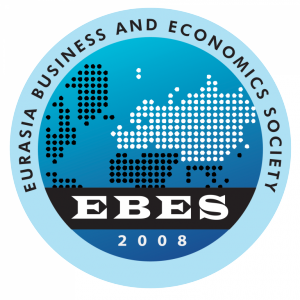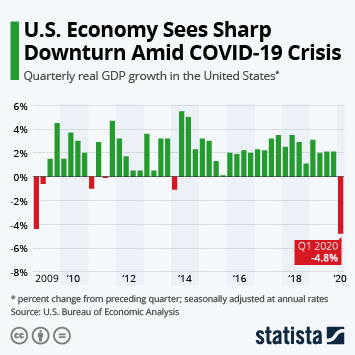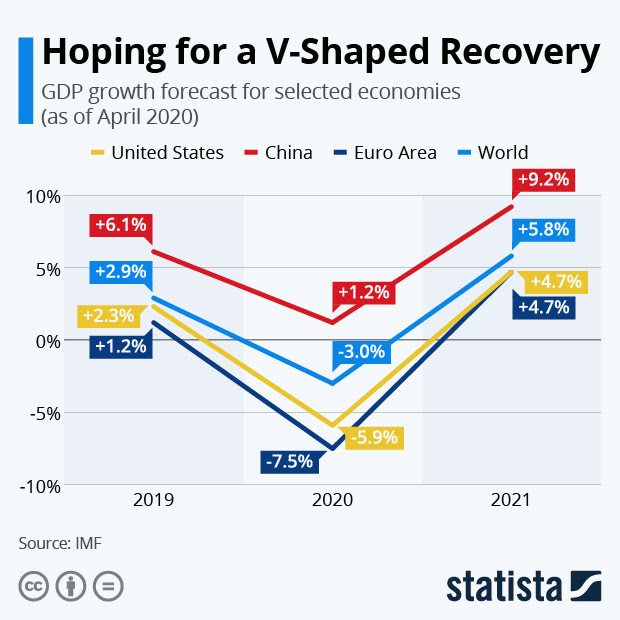The 32nd EBES Conference in Istanbul was moved to August 5-7, 2020 due to the Coronacrisis.
32nd EBES Conference – Istanbul, August 5-7, 2020, Istanbul, Turkey
Hosted by Kadir Has University
Invited Speakers
We are pleased to announce that distinguished colleagues Asli Demirguc-Kunt, Klaus F. Zimmermann, Marco Vivarelli and Dorothea Schäfer will join the conference as keynote speakers:
Dr. Asli Demirguc-Kunt is the Chief Economist of Europe and Central Asia Region of the World Bank. Over her 30-year career in the World Bank, she has also served as the Director of Research, Director of Development Policy, and the Chief Economist of the Finance and Private Sector Development Network, conducting research and advising on financial and private sector development issues. She has published articles in many of the leading economics and finance journals such as Journal of Finance, Journal of Financial Economics, Journal of Financial and Quantitative Analysis, The Review of Financial Studies, Journal of Banking and Finance, Journal of Monetary Economics, Journal of Money, Credit and Banking, Journal of Economic Perspectives etc. and is among the most-cited researchers in the world (Google Scholar = 76K). Her research has focused on the links between financial development, firm performance, and economic development. Banking and financial crises, financial regulation, access to financial services and inclusion, as well as SME finance and entrepreneurship are among her areas of research. She has also created the Global Financial Development Report series and the Global Findex financial inclusion database. She was the President of the International Atlantic Economic Society (2013-14) and Director of the Western Economic Association (2015-18) and serves on the editorial boards of professional journals. Prior to her position in the World Bank, she was an Economist at the Federal Reserve Bank of Cleveland. She holds a Ph.D. and M.A. in economics from Ohio State University.
Klaus F. Zimmermann is President of the Global Labor Organization (GLO); Co-Director of POP at UNU-MERIT; Full Professor of Economics at Bonn University (em.); Honorary Professor, Maastricht University, Free University of Berlin and Renmin University of China; Member, German Academy of Sciences Leopoldina, Regional Science Academy, and Academia Europaea (Chair of its Section for Economics, Business and Management Sciences). Among others, he has worked at Macquarie University, the Universities of Melbourne, Princeton, Harvard, Munich, Kyoto, Mannheim, Dartmouth College and the University of Pennsylvania. Research Fellow of the Centre for Economic Policy Research (CEPR) and Fellow of the European Economic Association (EEA). Editor-in-Chief of the Journal of Population Economics. Editorial Board of International Journal of Manpower, Research in Labor Economics and Comparative Economic Studies, among others. Founding Director, Institute for the Study of Labor (IZA); Past-President, German Institute for Economic Research (DIW). Distinguished John G. Diefenbaker Award 1998 of the Canada Council for the Arts; Outstanding Contribution Award 2013 of the European Investment Bank. Rockefeller Foundation Policy Fellow 2017; Eminent Research Scholar Award 2017, Australia; EBES Fellow Award 2018. He has published in many top journals including Journal of Economic Perspectives, American Economic Review, Econometrica, Journal of the European Economic Association, Journal of Human Resources, Journal of Applied Econometrics, Public Choice, Review of Economics and Statistics, Journal of Population Economics and Journal of Public Economics. His research fields are population, labor, development, and migration.
Marco Vivarelli is a full professor at the Catholic University of Milano, where he is also Director of the Institute of Economic Policy. He is Professorial Fellow at UNU-MERIT, Maastricht; Research Fellow at IZA, Bonn; Fellow of the Global Labor Organization (GLO). He is member of the Scientific Executive Board of the Eurasia Business and Economics Society (EBES); member of the Scientific Advisory Board of the Austrian Institute of Economic Research (WIFO, Vienna) and has been scientific consultant for the International Labour Office (ILO), World Bank (WB), the Inter-American Development Bank (IDB), the United Nations Industrial Development Organization (UNIDO) and the European Commission. He is Editor-in-Chief of the Eurasian Business Review, Editor of Small Business Economics, Associate Editor of Industrial and Corporate Change, Associate Editor of Economics E-Journal, member of the Editorial Board of Sustainability and he has served as a referee for more than 70 international journals. He is author/editor of various books and his papers have been published in journals such as Cambridge Journal of Economics, Canadian Journal of Economics, Economics Letters, Industrial and Corporate Change, International Journal of Industrial Organization, Journal of Economics, Journal of Evolutionary Economics, Journal of Productivity Analysis, Labour Economics, Oxford Bulletin of Economics and Statistics, Regional Studies, Research Policy, Small Business Economics, Southern Economic Journal, World Bank Research Observer, and World Development. His current research interests include the relationship between innovation, employment, and skills; the labor market and income distribution impacts of globalization; the entry and post-entry performance of newborn firms.
Dorothea Schäfer is the Research Director of Financial Markets at the German Institute for Economic Research (DIW Berlin) and Adjunct Professor of Jönköping International Business School, Jönköping University. She has also worked as an evaluator for the European Commission, the Federal Ministry of Education and Research and Chairwoman of Evaluation Committee for LOEWE (Landes-Offensive zur Entwicklung Wissenschaftlich-ökonomischer Exzellenz des Bundeslandes Hessen). She managed various research projects supported by the Deutsche Forschungsgemeinschaft (DFG), the EU Commission, the Fritz Thyssen Foundation and the Stiftung Geld und Währung. Her researches were published in various journals such as Journal of Financial Stability; German Economic Review; International Journal of Money and Finance; Small Business Economics; and Economic Modelling. She is regularly invited as an expert in parliamentary committees, including the Finance Committee of the Bundestag and gives lectures on financial market issues in Germany and abroad. She is also a member of the Editorial Board and Editor-in-Chief of the policy-oriented journal “Vierteljahrshefte zur Wirtschaftsforschung” (Quarterly Journal for Economic Research) and Editor-in-Chief of Eurasian Economic Review. Her research topics include financial crisis, financial market regulation, financing constraints, gender, and financial markets, financial transaction tax.
Board
Prof. Klaus F. Zimmermann, UNU-MERIT and Maatricht University, The NetherlandsProf. Jonathan Batten, University Utara Malaysia, Malaysia
Prof. Iftekhar Hasan, Fordham University, U.S.A.
Prof. Euston Quah, Nanyang Technological University, Singapore
Prof. John Rust, Georgetown University, U.S.A.
Prof. Dorothea Schäfer, German Institute for Economic Research DIW Berlin, Germany
Prof. Marco Vivarelli, Università Cattolica Del Sacro Cuore, Italy
Abstract/Paper Submission
Authors are invited to submit their abstracts or papers no later than July 3, 2020
For submission, please visit our website at https://www.ebesweb.org/Conferences/32nd-EBES-Conference-Istanbul/Abstract-Submission.aspx no submission fee is required.
General inquiries regarding the call for papers should be directed to ebes@ebesweb.org.
Publication Opportunities
Qualified papers can be published in EBES journals (Eurasian Business Review and Eurasian Economic Review) or EBES Proceedings books after a peer-review process without any submission or publication fees. In this regard, qualified papers from the 32nd EBES Conference will be published in the special issues of EABR and EAER. However, if there are not enough qualified papers submitted for the special issues, there will be no special issues and qualified papers will be published in the regular issues of the journals.
EBES journals (EABR and EAER) are published by Springer and both are indexed in the SCOPUS, EBSCO EconLit with Full Text, Google Scholar, ABS Academic Journal Quality Guide, CNKI, EBSCO Business Source, EBSCO Discovery Service, EBSCO TOC Premier, International Bibliography of the Social Sciences (IBSS), OCLC WorldCat Discovery Service, ProQuest ABI/INFORM, ProQuest Business Premium Collection, ProQuest Central, ProQuest Turkey Database, ProQuest-ExLibris Primo, ProQuest-ExLibris Summon, Research Papers in Economics (RePEc), Cabell’s Directory, and Ulrich’s Periodicals Directory. In addition, while EAER is indexed in the Emerging Sources Citation Index (Clarivate Analytics), EABR is indexed in the Social Science Citation Index (SSCI) and Current Contents / Social & Behavioral Sciences.
Also, all accepted abstracts will be published electronically in the Conference Program and the Abstract Book (with an ISBN number). It will be distributed to all conference participants at the conference via USB. Although submitting full papers are not required, all the submitted full papers will also be included in the conference proceedings in a USB. After the conference, participants will also have the opportunity to send their paper to be published (after a refereeing process managed by EBES) in the Springer’s series Eurasian Studies in Business and Economics (no submission and publication fees).
This will also be sent to Clarivate Analytics in order to be reviewed for coverage in the Conference Proceedings Citation Index – Social Science & Humanities (CPCI-SSH). Please note that the 10th, 11th, 12th, 13th, 14th, 15th, 16th, 17th, 18th, 19th, 20th (Vol. 2), and 24th EBES Conference Proceedings are accepted for inclusion in the Conference Proceedings Citation Index – Social Science & Humanities (CPCI-SSH). Other conference proceedings are in progress.
Important Dates
Abstract Submission Start Date: January 15, 2020
Abstract Submission Deadline: July 3, 2020
Reply-by: July 6, 2020*
Registration Deadline: July 17, 2020
Announcement of the Program: July 20, 2020
Paper Submission Deadline (Optional): July 17, 2020**
Paper Submission for the EBES journals: September 15, 2020
* The decision regarding the acceptance/rejection of each abstract/paper will be communicated with the corresponding author within a week of submission.
** Completed paper submission is optional. If you want to be considered for the Best Paper Award or your full paper to be included in the conference proceedings in the USB, after submitting your abstract before July 3, 2020, you must also submit your completed (full) paper by July 17, 2020.
Contact
Ugur Can, Director of EBES (ebes@ebesweb.org)
Dr. Ender Demir, Conferene Coordinator of EBES (demir@ebesweb.org)


Eurasia Business and Economics Society
Ends;

















